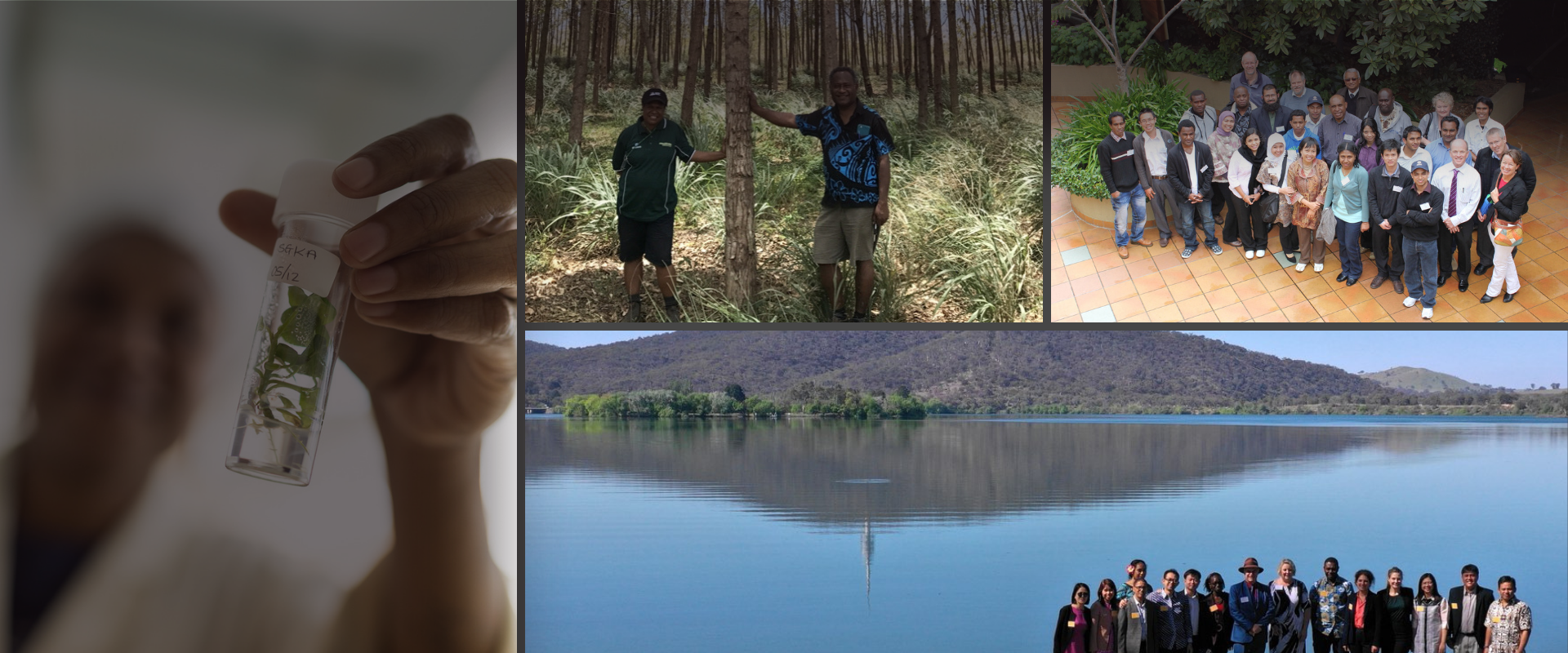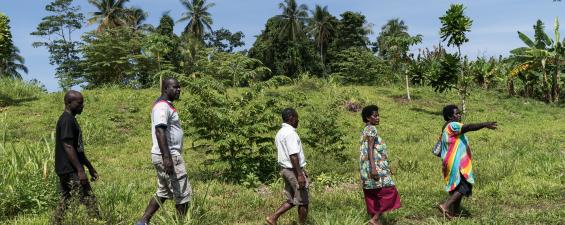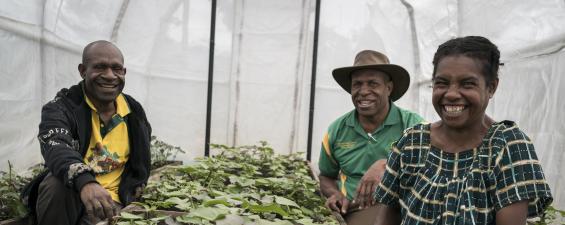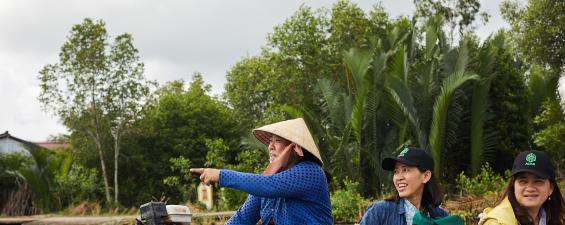ACIAR delivers a comprehensive program designed to build the capacity of agricultural researchers in the Indo-Pacific region.
As a leading research for development organisation, ACIAR recognises that gender inequalities exist in many countries. There is a significant gender gap in access to the benefits of agricultural development, including education, extension, agricultural inputs and financial services. In response, capacity building programs are specifically designed to be gender-aware, and promote social inclusion wherever possible.
The ACIAR 10-Year Strategy 2018-27 has improving gender equality and empowerment of women and girls as one of its six high-level objectives. To set out how ACIAR intends to progress that objective, the Gender Equity Policy and Strategy was developed. It focuses both internally on the organisation, and externally on the research portfolio.
The ACIAR Capacity Building Program is evolving to have a greater focus on leadership and career development, while maintaining an ongoing commitment to supporting post-graduate study. ACIAR understands the gendered nature of leadership in agricultural science both domestically and in our partner countries. As a result a new leadership program for women in agricultural research is being developed and an executive leadership program for post-graduate fellows that promotes gender equality started in 2019.
At the same time, ACIAR is building a stronger alumni program working closely with our past fellows in their home countries to support continuous capacity building that meets their self-identified needs. Alumni engagements highlight the diverse achievements, knowledge and influence of all alumni and seek to create a network of gender-inclusive professionals who support excellence in agricultural research.
Australian researchers are also being targeted through a range of initiatives designed to ensure the current and next generation of international agricultural researchers are exposed to the work of ACIAR, and that future expertise is nurtured and developed. These programs have a gender focus, promoting the integration of gender studies with agricultural research.
In order to ensure ACIAR is meeting its commitments on gender equality, a new Monitoring and Evaluation Framework with an explicit focus on gender equity is now in place. This framework seeks to highlight the gendered elements of access to and involvement in ACIAR’s training and education programs, and ensures progress on gender and social inclusion is tracked.
John Allwright Fellowship and Executive Leadership Program
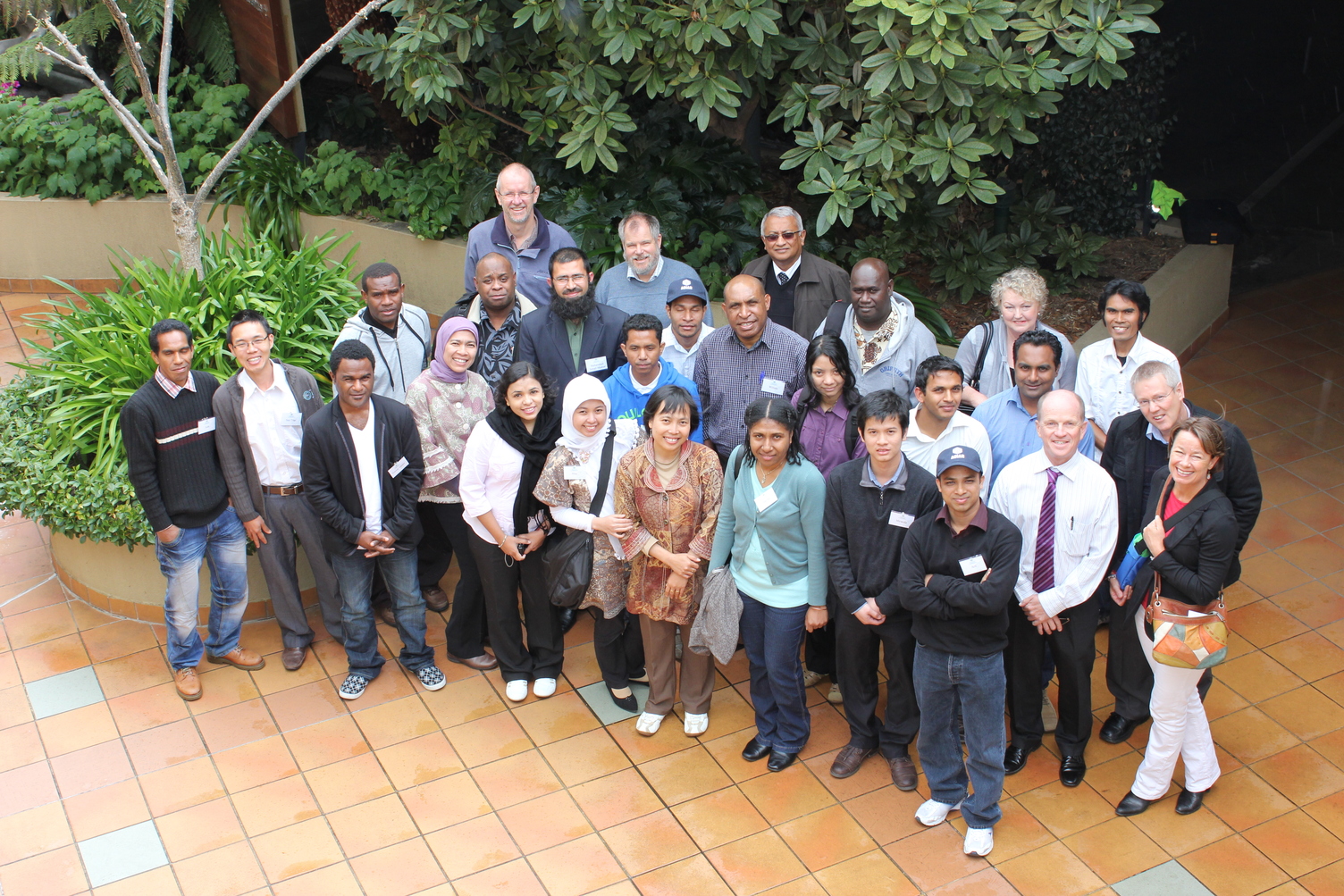
The John Allwright Fellowship (JAF) is ACIAR’s largest capacity building program in financial terms. It provides PhD and Masters scholarships to agricultural researchers, administered through the Australia Awards system.
There are around 90 JAFs studying in Australia at 12 universities across the country. Applications are invited annually. Applicants must be connected with an ACIAR project through current or recent work. JAFs complete their post-graduate studies in a range of agriculture related topics, including gender. For example, Thi Thu Hien Ngugyen from Vietnam recently completed her MA (research) from Flinders University. Her research focused on the gendered impacts of agricultural research in Vietnam and the resulting effects on nutrition.
In 2017 a new policy was adopted that ensures that at least half of new JAFs are women. In 2019, 36 percent of fellows currently studying are women. In its Gender Equity and Policy Strategy 2017-2022 ACIAR has committed to achieving gender parity in its capacity building programs by 2020 and we are on track to achieve this goal.
In 2019 the first annual cohort of JAFs started the new John Allwright Fellowship Executive Leadership Program (JAFel). Delivered by the University of New England, the cohort of 24 have completed a 10-day intensive camp and begun a 15-month program of online learning. This is expected to take around six hours a month and be completed alongside the fellows’ post-graduate study. The program will conclude with a four-day camp. On completion, JAFel participants achieve 50 percent of a certificate qualification.
Gender is mainstreamed and integrated into every aspect of the executive leadership program, which includes leadership and communication skills, and people, finance, and project management. At the initial camp, diverse cross-cultural understanding of gender and power relations between the scholars were uncovered and consensus was built around the need to seek locally-relevant approaches to gender equality.
John Dillon Fellowship
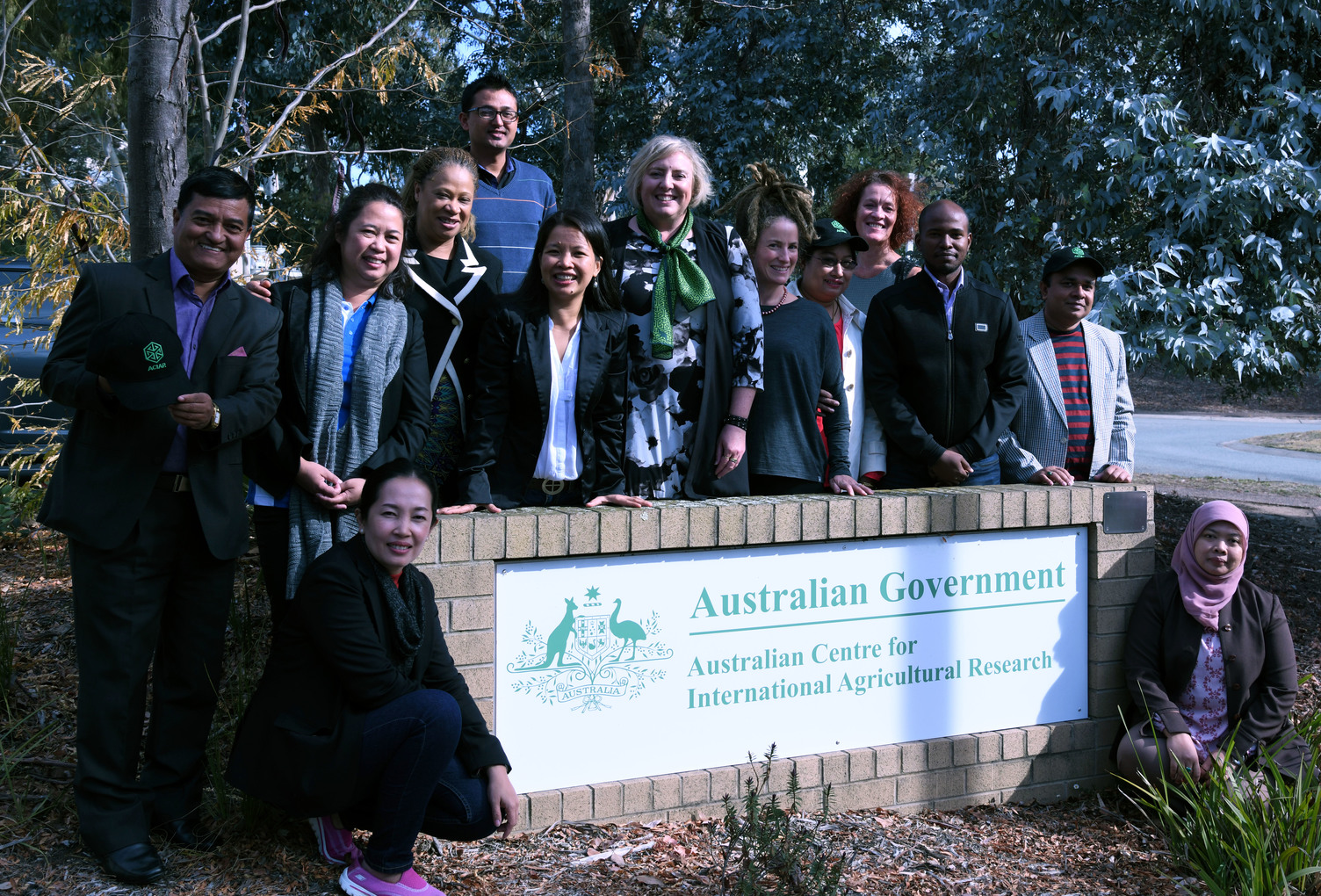
The John Dillon Fellowship (JDF) is a six-week program run twice a year for 15 mid-career agricultural researchers connected to ACIAR projects. It is delivered in Australia by the University of the Sunshine Coast. Fellows participate in a program of workshops, field-trips and networking events and undertake a short institutional placement.
Like JAFel, gender is mainstreamed and integrated into all aspects of the JDF program. A major achievement is the support offered to women agricultural research managers in finding their voice, and empowering them to express their views amongst their male peers. This process has been transformative for both men and women.
Applications for the JDF are invited annually, and in line with the Gender Equity Policy and Strategy, a minimum of 50 percent of participants selected are women. In 2018, 54 per cent of the JDFs across two cohorts were women.
In 2019 a round of the JDF focusing on small cohorts from institutions in Papua New Guinea will be delivered. This iteration of the program will engage with senior management in host institutions to build support for gender equity and social inclusion in leadership. A second round made up of researchers from the Indo-Pacific and two Australian researchers will be delivered later in the year.
New Women’s Leadership Program
In recognition of unequal access to agricultural education and leadership positions, a new fellowship program for female agricultural researchers in the Indo-Pacific will open for applications in the second half of 2019. Still in development, the program delivers on ACIAR’s commitment made in the Gender Equity Policy and Strategy to develop a leadership program for women in agricultural science.
Open to women with a Bachelor qualification and above, the program will focus on leadership and high-level science skills. It also includes workshops for key people within the fellows’ workplace and in-country mentors, recognising the importance of fostering institutional support for women’s leadership.
The first cohort of the fellowship will start in early 2020 with a program of workshops in Australia and an up-to three-month internship and will run over 18 - 24 months.
Before the program begins, a baseline study of the status of women’s leadership in agriculture for development will be undertaken. This will enable a benchmark to be established on which to measure progress over time.
University of the South Pacific Scholarship Program
For the last 10-years, annual cohorts of 16 students have received funding to undertake post-graduate research alongside an ACIAR project, through the University of the South Pacific (USP). Studies have mainly focused on horticulture, biology, forestry, marine science and geology.
The cohort has included students from seven Pacific countries, and 53 percent of current scholars are women.
This program is supported through a twinning arrangement between USP and the University of the Sunshine Coast (USC). In 2018 USC delivered a Promoting Women’s Leadership in Agriculture workshop for the USP scholars.
Australian Researcher activities
In addition to including two Australian researchers in the JDF cohort each year, ACIAR has a suite of activities targeting Australian researchers:
-
ACIAR graduate program – over the past 10 years ACIAR has offered two places each year in a 12-month paid work experience program for Australian university graduates with a relevant degree and an interest in international agricultural research. Participants have the possibility of being offered a further 12-months working in ACIAR as a research officer. The aim of the program is to inspire and grow future Australian agricultural research scientists to provide a talent pipeline for ACIAR and the international agricultural research sector. Of the 20 graduates who have participated in the program, 13 are women and seven are men.
-
Financial support for the Researchers in Agriculture for International Development (RAID) network through The Crawford Fund. RAID is an active network of early career researchers who share knowledge and opportunities related to agricultural research for international development.
-
An internship program mainly focusing on placing Master of Business Administration students in agri-business projects. Building on a pilot program of two internships in 2017, an eight-place program is underway in 2018-19. Australian students work in-country alongside ACIAR projects on a specific task for a period of 3-6 months. In 2019 the first gender internship will take place in Pakistan with a social sciences graduate working alongside an Australian project leader within a large water management project, assessing women’s empowerment through new adult learning models.
-
ACIAR staff participate in Gender and Social Inclusion Workshops that cover the theory, function of social roles, unconscious bias and the relevance of social inclusion to the organisation’s daily work. Staff are also provided with tools for gender and inclusion mainstreaming to apply to their own work context.
-
ACIAR has published Gender Guidelines for Project Proposals to help research project teams to better incorporate gender inequality in research design, delivery and impact.
Alumni Program
All participants in ACIAR capacity building programs are considered alumni. The Alumni program is being driven through ACIAR’s country and regional offices with support from the Capacity Building Program. In-country alumni are being consulted about the type of network they would like to create and activities they feel would benefit them. These range from workshops to improve their science communication skills, field trips to ACIAR projects, and presentations from experts.
There are a number of gender experts and practitioners within the alumni network. These individuals are a resource that ACIAR and partners are able to utilise for boarder capacity building on gender and social inclusion, and to support project teams design monitoring activities.
For example, Shangrila Fuentes – a John Dillon Fellow – from the University of Philippine Mindanao (UP Mindanao) is co-presenting a paper at the Seeds of Change: Gender Equality Through Agricultural Research for Development conference in April 2019 on Gender and Conflict Affected areas.
While at the Mekong region alumni event in 2018, participants shared experiences of implementing culturally-grounded gender empowerment approaches.
